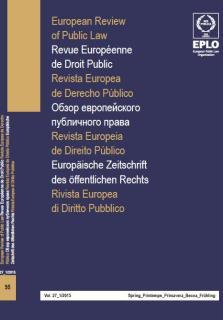
New Challenges to Democracy
Slovakia
Mária Patakyová
Professor, Comenius University in Bratislava, Slovakia
Mária Patakyová
PhD student, Comenius University in Bratislava, Slovakia
The Slovak Republic has experienced several significant changes in relation to the constitutional order of the State in the past few years. The boundaries between political and judicial power have changed, mostly because of the strengthening of the Presidential competence not to appoint to a position a person already elected or selected to a function. Particularly, representative of this competence of the President are the examples with regard to the appointment of the General Prosecutor, the judges of the Constitutional Court and the judges of the general/common courts. It is especially interesting to examine the division of the political and judicial reasoning in such cases. After several years, it becomes more clear what should be understood as a proper reason for such non-appointment according to the Constitutional Court. However, what could be dealt with more successfully is undoubtedly the legislation. The entrepreneurs as well as the media call for a more complex, more predictable and more stable legislation. The substantive fairness could be doubted in some acts of law. Moreover, the effect of the European Union Law is not always positive, even though the improper transposition of the directives should be held responsible for that on some occasions.
La République slovaque a vécu des changements importants dans le domaine de l’ordre constitutionnel de l’Etat ces dernières années. Les limites entre pouvoir politique et pouvoir judiciaire ont changé, en raison essentiellement du renforcement du pouvoir présidentiel de ne pas nommer une personne une fois qu’elle a été élue ou sélectionnée pour une fonction. Il estpossible de voir des exemples de cette compétence du président concernant notamment le procureur général, les juges de la Cour constitutionnelle et les juges des tribunaux ordinaires. Il est particulièrement intéressant d’examiner la différence entre le raisonnement politique et le raisonnement judiciaire en de tels cas. Au bout de quelques années, on voit plus clairement ce qui devrait être compris comme un bon motif pour un tel refus de nomination selon la Cour constitutionnelle. Cependant, ce qui pourrait être traité avec un plus grand succès, c’est indubitablement la législation. Les entrepreneurs aussi bien que les médias souhaitent une législation plus élaborée, plus prévisible et plus stable. L’équité pourrait être mise en doute dans certaines lois. En outre, l’impact du droit de l’Union n’est pas toujours positif, même si la transposition imparfaite des directives devrait en être tenue responsable dans certains cas.





















